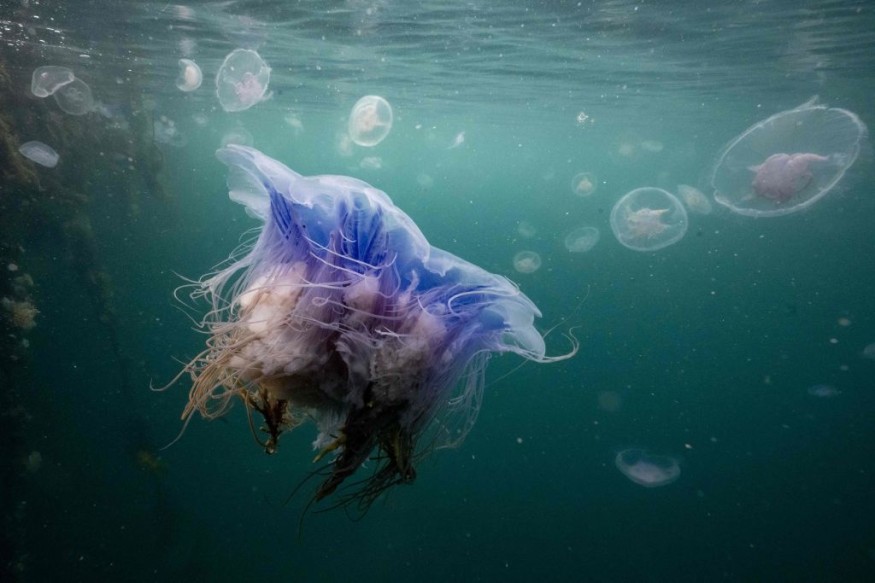
A recent study found that pelagic jellyfish is often disturbed by ocean warming and deep-sea mining.
Experts said that the deep pelagic ocean is increasingly subjected to human-induced environmental change.
They noticed that while pelagic animals provide important ecosystem functions including climate regulation, species-specific responses to stressors remain poorly documented.
Effects of Ocean Warming and Sediment Plumes
Researchers have investigated the effects of simulated ocean warming and sediment plumes on the cosmopolitan deep-sea jellyfish Periphylla periphylla, combining insights gained from physiology, gene expression and changes in associated microbiota.
The metabolic demand was elevated following a 4 °C rise in temperature, promoting genes related to innate immunity but suppressing aerobic respiration. Further, suspended sediment plumes provoked the most acute and energetically costly response through the production of excess mucus (at ≥17 mg L-1), while inducing genes related to aerobic respiration and wound repair (at ≥167 mg L-1).
Microbial symbionts appeared to be unaffected by both stressors, with mucus production maintaining microbial community composition.
They said that if these responses are representative for other gelatinous fauna, an abundant component of pelagic ecosystems, the effects of planned exploitation of seafloor resources may impair deep pelagic biodiversity and ecosystem functioning.
Experts noted that a major threat to pelagic fauna is the global increase in ocean temperatures that is usually brought by the emission of greenhouse gases.
They said that deep pelagic organisms have evolved under relatively stable thermal conditions, which generally translates to narrow physiological tolerances that make them particularly vulnerable to environmental change.
Studies have shown that while organisms adapted to undergo vertical migrations may be less sensitive to changes in temperature than non-migrant species, metabolic activity in ectotherms generally scales with temperature.
''As a result, increasing temperatures can directly increase metabolic rates and thus the nutritional demand of pelagic organisms. Since food in the deep sea is generally scarce, elevated temperatures could therefore increase metabolic demands beyond normal energy intakes Effects were most noticeable in the excretion of ammonium and gene expression, while the increasing trend in oxygen consumption could not be supported statistically," the study indicated.
The study noted that this moderate response in oxygen consumption can potentially be explained by P. periphylla's ability to perform both aerobic and anaerobic respiration simultaneously, with downregulated genes here suggesting a shift away from aerobic metabolism..
According to the study, this offset of metabolic balances may be further amplified by the depletion of dissolved oxygen, which is an accompanying effect of warming oceans.
Although the scaling of metabolic rates in ectotherms by temperature is well characterized for a wide range of pelagic fauna, the data have remained limited for fragile or rare taxa as many deep pelagic animals are difficult to study and collect from their natural environment.
Commercial Exploitation of the Seabed
In addition to ocean warming, the mining of deep-sea mineral resources has recently raised concerns about the potential negative effects on pelagic animals.
Experts noted that although the commercial exploitation of the seabed has yet to commence, pilot studies for the extraction of ore minerals are already underway.
They said that few regulations exist to guide future mining operations in minimizing the effects on pelagic ecosystems, despite control of the International Seabed Authority (ISA), which regulates all mineral-related activities in international waters.
Other metabolic costs of P. periphylla in response to the highest temperature treatment appeared to be associated with upregulation of innate immunity.
Innate immune systems are found in most invertebrates and form a first line of defense to detect and target foreign molecules or damaged tissues.
Related Article : Extremely Rare Sea Cucumber Lives Life Like a Jellyfish
© 2026 NatureWorldNews.com All rights reserved. Do not reproduce without permission.





